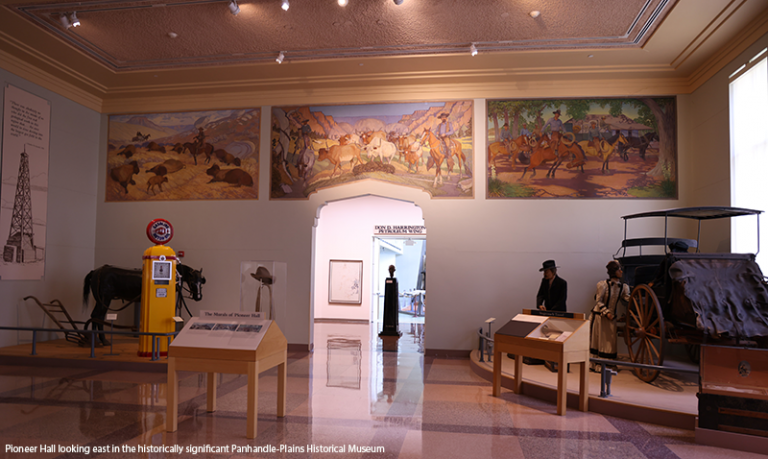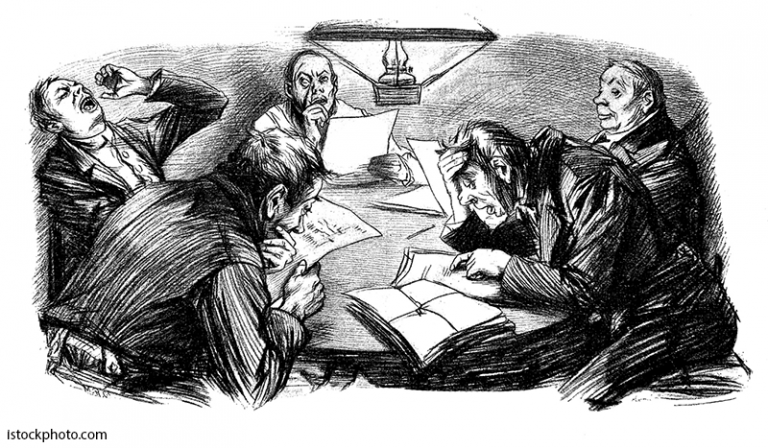
Eighth and final in a series on the Heart and Soul of the Texas Panhandle
Over the past seven weeks, various intersecting aspects of the Texas Panhandle and West Texas A&M University have been communicated in the ‘Heart and Soul of the Texas Panhandle’ series. The shared values of the place we call home and the University are invaluable to our future. Family, the love of place and dedication to something larger than self, rugged individualism, public and private space, the faith of people, loyalty and the power of ideas shape the Panhandle and WT.
Recognizing these powerful, life-changing forces at work led to the conception of establishing the Cultural Foundation of the Texas Panhandle (CFTP). These geographic, social and economic forces need recognition in contemporary society that trips from one soundbite to another and fleeting conceptions of power without purpose. Being part of The Texas A&M University System as a regional institution, WT’s contribution to the larger purpose of Texas cannot be overlooked. Also, to help give us direction, it must be understood and calibrated to remember our history, appreciate our present, and look forward to a profitable and engaging future; this is the purpose of the CFTP.
When the land-grant institutions were established by the Morrill Act, signed by President Abraham Lincoln on July 2, 1862, one aspect of the Act was “to promote the liberal and practical education of the industrial classes in the several pursuits and professions in life.” As a regional university serving the citizens of West Texas and simultaneously a member of The Texas A&M University System, WT is associated with two important entities: the TEXAS Outdoor Musical in the Palo Duro Canyon and the Panhandle-Plains Historical Museum on the WT campus. Both endeavor to promote an understanding of and appreciation for Texas history and to promote “several pursuits and professions in life.”
WT is forward-looking, yet, our history strongly shapes us. But, that history is wedded to our purpose in shaping the future of the Panhandle and the state. One without the other is lifeless.
WT is taking a leadership role as a forward-looking and historically appreciative storehouse of insights and ideas that empower and inform future growth and service. Such a commitment is not solely WT’s jurisdiction, to be sure; but, it is a responsibility of all in our region. It is our future.
As one of the regional institutions in the A&M System, WT is a significant repository of historical records, artifacts and relationships to our extended community, as well as a responsibility for the maintenance of insights embedded in the TEXAS Musical and the Panhandle-Plains Historical Museum. These are clear local examples that have great value to the larger audience of the state of Texas. Coupled with these three organizations, the Palo Duro Canyon’s geographic asset marks our region as central to the future development of Texas. The collections, artifacts, galleries, repositories and events of substance that, if thoughtfully coordinated, would have statewide value to students of every stripe and locale, at every level of study.
The pragmatics of the CFTP are driven by two important organizations, the Panhandle-Plains Historical Museum as one of the most extensive collections of Texas Art and artifacts in our state and the TEXAS Musical. Both enterprises are primarily focused on West Texas and the Panhandle. I believe their value extends far beyond our region. The impact of the Panhandle on the state was, and continues to be, significant.
In concert, the boards of the TEXAS Musical and the Panhandle-Plains Historical Museum create one unified, well-functioning, regionally-driven, statewide enterprise like no other. The role of the combined group is to preserve the cultural foundations of the Texas Panhandle. This worthwhile endeavor extends the purpose and reach of WT and the Texas Panhandle.
Creating the CFTP Advisory Board, established as a cultural nonprofit organization with a board-appointed membership that represents business, industry, education, and civic pride from various statewide leadership perspectives, is unique to our role of service to and support of the Panhandle.
For more information on the Cultural Foundation of the Texas Panhandle effort, please visit https://www.wtamu.edu/about/administration/cftp/index.html.
Walter V. Wendler is President of West Texas A&M University. His reflections are available at https://walterwendler.com/.






